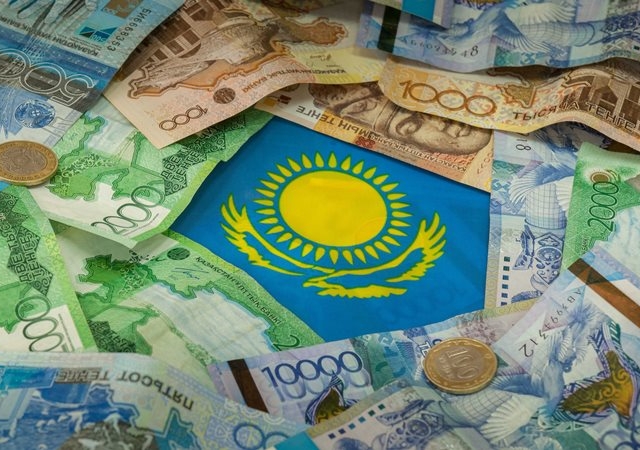Kazakhstan's tenge slides against dollar

By Vusala Abbasova
Kazakhstan’s national currency, tenge, fell to 306.85 per US dollar on the Kazakhstan Stock Exchange on November 12.
Kazakhstan's national currency has been sliding largely due to the country's high dependence on oil revenues, experts believe.
Kazakhstan's economy is dependent on the export of its natural resources, and the fluctuating global oil prices have had a significant impact on these exports from the energy-rich Kazakhstan, which is the second largest oil producer after Russia among the former Soviet Union countries.
The country, producing about 1.6 million barrels a day, has lost 40 percent of its budget revenues as a result of the falling global prices of hydrocarbons.
The current unstable situation is also connected to the Russian recession as well as weak commodity prices, which have led to an economic slowdown in Central Asian countries.
The Kazakhstan-Russia cooperation in the framework of EEU has, in fact, resulted in the Kazakhstan economy facing a range of difficulties since the Russian ruble has been sliding every passing day as a result of Western sanctions and falling oil prices.
The weakening of ruble and recession in the Russian economy have added to the pressures on currencies in Eastern Europe, the Caucasus (EEC) and Central Asia, given these regions’ strong trade, investment and financial sector links with Russia.
No wonder, the German expert on Central Asia, Michael Laubsch, believes that Kazakh President Nursultan Nazarbayev was right when he recently announced that Kazakhstan's economy is becoming more challenging and the situation will worsen when the real crisis arrives.
Laubsch also said it was too risky to remain dependent only on one product and one partner in a globalized world and, therefore, Kazakhstan should develop its economic policy that is completely independent of oil.
Kazakhstan switched from a US dollar peg to a floating exchange rate regime in anticipation of lower oil prices on August 20, 2015.
Since then, Kazakhstan’s currency, the tenge, has depreciated by some 30 per cent.
Kazakhstan’s national currency has weakened by 24.7 percent over the ten months of 2015, according to the Kazakhstan National Bank. Since the beginning of 2014 to October 2015, tenge has weakened by 20 percent.
Since the beginning of the year, tenge has weakened against the dollar by 29.7 percent, and since the beginning of 2014, by 36.5 percent.
Tenge has weakened by 21.9 percent against the euro over the ten months of 2015, and by 20.8 percent since the beginning of 2014.
Similarly, tenge weakened against the Chinese yuan by 28 percent since the beginning of 2015 and by 34.2 percent since the beginning of 2014.
Kazakhstan's tenge has also weakened against the currencies of its partner countries within the EEU.
In real terms, the tenge weakened against the Russian ruble between January and October 2015 (the real exchange rate) by 27.6 per cent.
However, tenge strengthened against the ruble by 0.5 percent since the beginning of 2014 to October 2015.
The national currency of Kazakhstan traded at 154.06 per dollar in early 2014, according to the National Bank of Kazakhstan.
The official rate of the National Bank of Kazakhstan amounted to 306.74 tenge per dollar on November 11.
---
Follow us on Twitter @AzerNewsAz
Here we are to serve you with news right now. It does not cost much, but worth your attention.
Choose to support open, independent, quality journalism and subscribe on a monthly basis.
By subscribing to our online newspaper, you can have full digital access to all news, analysis, and much more.
You can also follow AzerNEWS on Twitter @AzerNewsAz or Facebook @AzerNewsNewspaper
Thank you!
